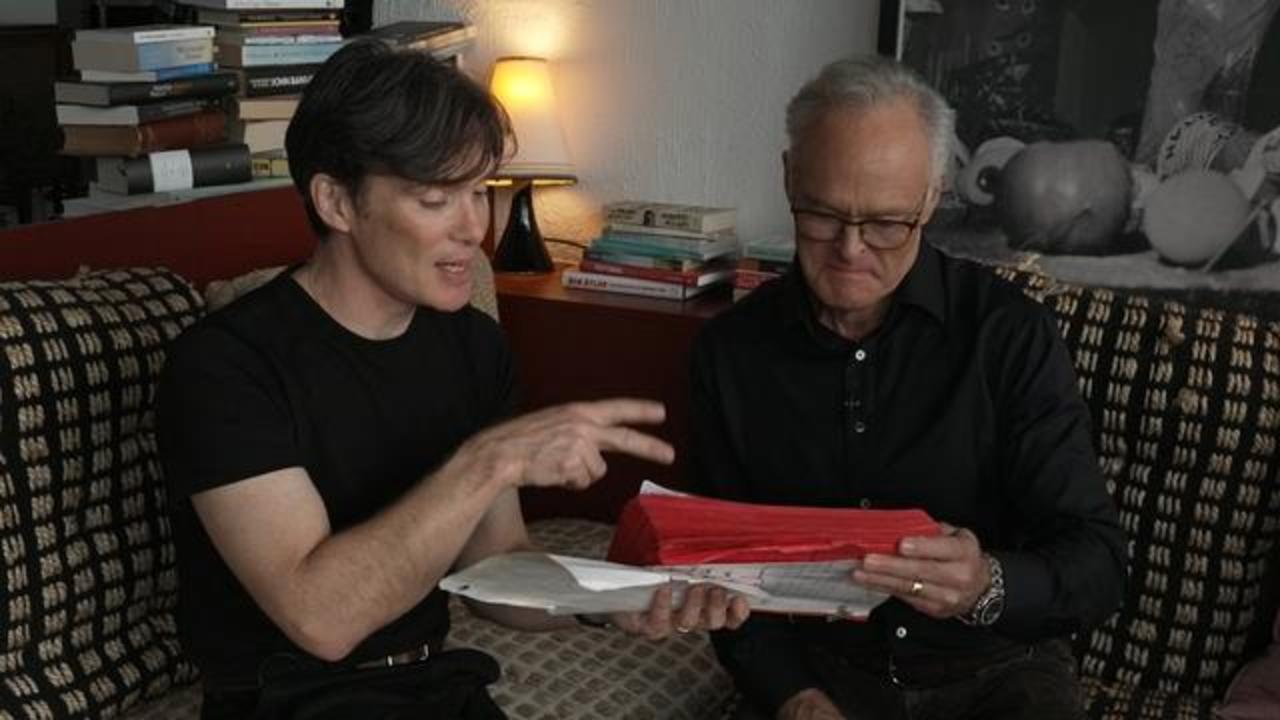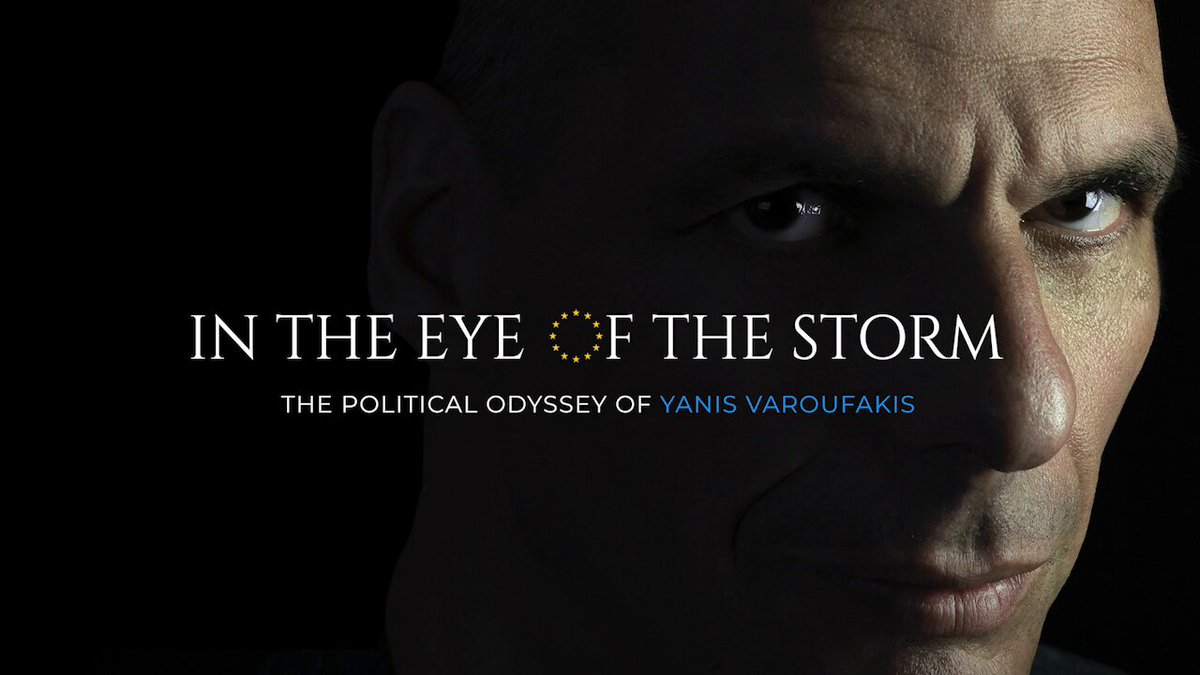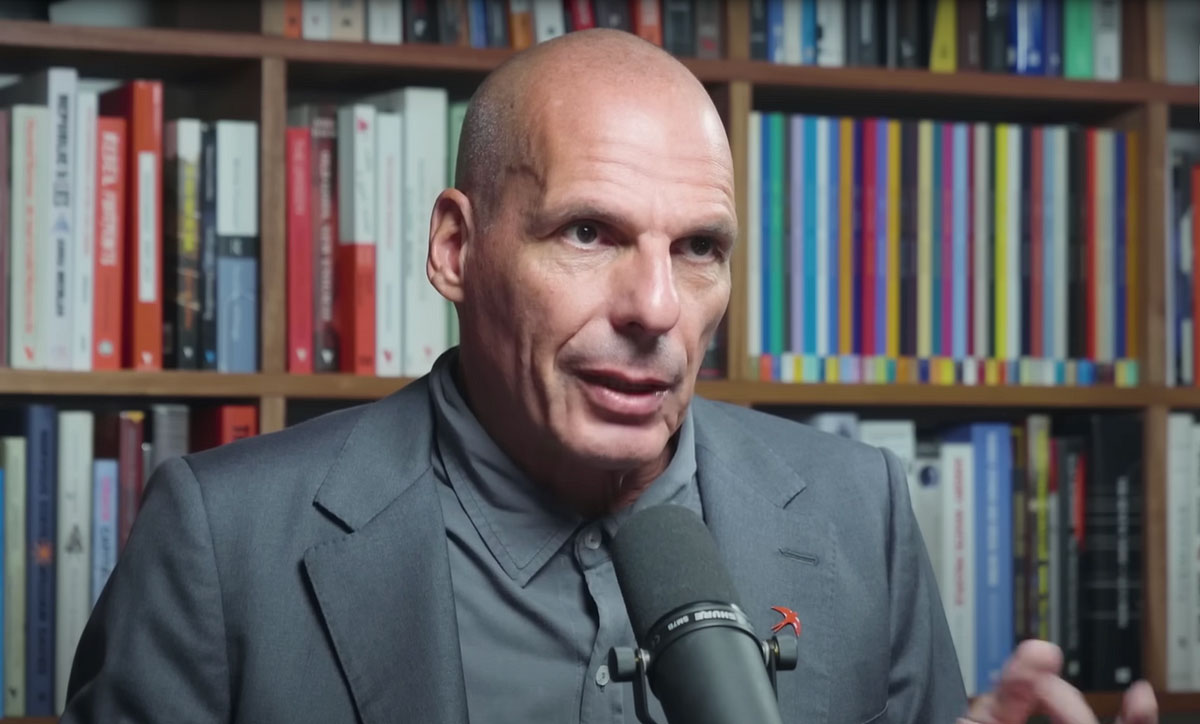by Carl Rutan
RUTAN: Christopher Hitchens, a Washington correspondent, uh, with The Nation, you write a column for them every two weeks. There are lots and lots of TV talk shows that news junkies can watch to get information or hear analysis. What do you think of these talk shows?
HITCHENS: Or to watch their friends, or to see how the press sort of massages itself in a narcissistic manner. I, um, I wrote a piece about it recently for Harper’s Magazine saying that the, really the level now of TV discussion of ideas and politics has become humiliatingly low, that it’s the province of various, well what I call, repertory company of pundits, who take themselves far too seriously, who take each other far too seriously, and are taken by too many viewers more seriously than they deserve because these programs are very light minded, very frivolous. Usually they’re contrived, though they pretend not to be—the fix is in. There are built-in limits to what’s going to be said or can be said. And that it’s, I suggest towards the end of my thesis—maybe for this reason —that the culture of journalism in Washington has become so sycophantic. The president didn’t have a really tough press conference until he was six years into his, uh, presidency and when the country was entering into tremendous crisis, only then did he start getting tough questions.
RUTAN: This is the article [holds up copy of Harper’s Magazine to the camera] that appears in the recent issue of Harper’s, and you call it “Blabscam,” or an editor might have given it that—did you call it this or did some editor give it that title?
HITCHENS: I must say, I think it was Lewis Lapham, the editor. It’s a clever one, I’d like to claim credit for it.
RUTAN: “Blabscam, TV’s rigged political talk shows” by you, Christopher Hitchens. “Blabscam” suggests a scandal. Is it really a scandal?
HITCHENS: Yeah, I think it’s a scandal. I think it’s a crying shame. [Coughs] I mean, I’ve been now on The McLaughlin Group, which probably some of your customers watch too, on, um, It’s Your Business—on most of these shows. The only one, you may be touched to see, I don’t mention as being a fix is, um, this show and I guess I could have also, um, mentioned Firing Line which I’ve been on, William Buckley’s program which, again, I wouldn’t include. I mean, in both these shows, if you walk off the set and think, “Damn, I wish I had been able to say this or I wish I had remembered to say that,” it’s your own fault. You had the chance to. With the others it’s all heavily confined occasions for the chairman to show off usually. Um, and unspoken agreement among the parties that certain awkward things won’t get mentioned at all. Um, so people are just really role playing.
RUTAN: Now, uh, for your appearance on C-Span this morning, you get one of these [taps mug with pen] handsome mugs we are drinking coffee out of this morning—
HITCHENS: Ah.
RUTAN: Do you get paid for the other shows, the other talk shows around Washington?
HITCHENS: Um, McLaughlin pays.
RUTAN: What do they pay? How much?
HITCHENS: Um, I can’t remember. I think if you’re a regular, it’s about $500 a shot. I think I got $350 as a guest. Um, [clears throat] the other ones don’t. I mean, the other ones, journalists would pay to go on because you are taken very seriously if you’re seen, you know, asking a toadying question to the secretary of state on one of the Sunday morning shows. So, it enhances your marketability. What, um, what is in it for journalists, is the tremendous increase in the rate they can charge for public speaking. If you are on the Brinkley show or something, then you’ll get a call from the league of women flower arrangers in Des Moines and you can, instead of accepting their $500, you can say, “Well, I don’t usually get out of bed for more than, uh, for less than two grand.” And the marketability goes up in that way. TV really helps you out.
RUTAN: Let’s talk about the, uh, three shows that are so widely watched on Sunday mornings, and I’m sure C-Span viewers, who read lots of newspapers, probably watch those shows. Must admit that I do. And I’m going to hold up your article from Harper’s, dateline Washington, an interesting story about how these shows are put together and how these shows consistently get top government officials. Dateline Washington, “In the White House press office, there sits a woman named Denny E. Brisley. You may not know Ms. Brisley. But if you watch the Sunday morning political chat shows, you know her work. To her falls the job of producing and editing the key segments of This Week with David Brinkley, Meet the Press, and Face the Nation.” Now, how is it that a White House official edits key segments of those three shows?
HITCHENS: The White House can decide who they are going to put up in a given week and they can tell administration officials not to go on the air that day, and they can tell others that they should go forward and carry the torch for the line of the week—whatever it may be, ’cause it now keeps changing so often. They can then get the three shows to bid against each other, for whoever is the most famous or prominent administration spokesman that week. And what that means is that these shows are not going to have you and me—critical independent minds as we are—on. When the White House rings up they say, “Well, so you’d like Mr. McFarland?” and, um, they say yes. And they say “Well, you know, CBS is looking for him too. Let me see, well what questions were you thinking of asking him? Who is, uh, who is going to be the panel?” Producers can learn quite quickly that you’re not going to make trouble for the guy; otherwise you’ll always be at the end of the totem pole that week. So, what looks like competition between the three networks is in fact a competition to please and to be bland, and not to outbid for getting the story, but outbid for getting the ratings-building figure. Now I say that is a scam, in the sense that it is a corruption of journalism. Yeah, and it is the reason why, um, the administration has been able to have such a tremendously easy ride over the last six years. And I say that, of course, as a political opponent of the administration, but I think it’s not in the interests of people who support the administration—to have it go uncriticized, it’s bad for it. It’s bad for our trade of journalism too. So that’s really the essence of what I’m saying, and I remembered one of those producers of one of those shows—I won’t say which one— saying to me, “I’m sick of having Larry Speakes being the chief producer for Sunday morning TV in this country.” And that’s really what the situation was.
RUTAN: You talk it, and you interviewed, uh, Ms. Brisley, is that correct?
HITCHENS: I, uh, no. I didn’t interview Ms. Brisley. I, um, The Nation is incredibly low in the administration’s scale of priorities when it comes to giving interviews. We’re never called at press conferences; they never call us back. I mean, that kind of thing. But those words are direct quotes that she gave to a friend of mine.
RUTAN: The quotes from Ms. Brisley to your friend are basically saying, “ ‘It’s all done in a very sensitive, diplomatic type language. Things are said, but not said.’ Among the things ‘said’ in this unspoken dialogue is something along these lines, ‘Don’t even think about having X on the panel of questioners or we’ll go to another network with the secretary and you’ll look small.’ ”
HITCHENS: Yeah.
RUTAN: So they even do it with journalists that might be asking tough questions of a member of the cabinet.
HITCHENS: Yeah. I mean, it’s a very small pool of people. I mean, look it’s like when, uh, I remember—I think it was the night of the bombing of Libya, um, a moment of extreme controversy in American life, in public life, and in American relations with the rest of the world. You know, Nightline calls up its list of impartial experts, and these are always the same people—Henry Kissinger, sometimes Jeane Kirkpatrick. Until very recently Michael Ledeen—who turns out to have been a man who was an expert on terrorism only in the sense of being a man bargaining with terrorists and swapping hostages for weapons with terrorists—was unabashedly on the television every week as NSC terrorism expert. So the definition of “expert” they had was, A, very narrow and, B, one that generally fit the government’s perspective on the issue. So that one had a tremendously conformist sense of politics and of debate transmitted into millions of homes without anyone really knowing the name of this woman in the White House press office, Denny Brisley, whose job it is to keep the thing smooth and prevent any rough questions or rough questioners from breaking it.
RUTAN: Is it possible for Ms. Denny Brisley or someone in the White House or in the White House press office to keep a critic of the Reagan administration off the shows by simply saying, “If you have them on, we won’t give you the secretary and we will give the secretary to your competitors.”
HITCHENS: As I say, and as she says, it’s done in a sensitive, diplomatic manner. After a while, I mean, any producer whose got any sense of himself at all will know what to do without being told. Let’s put it like that.
RUTAN: [holds up newspaper] Let’s take a look at who was on the, uh, TV talk shows last week, they do get a lot of publicity, and I’m looking at Monday’s USA Today and there’s a little story they have right here [points to newspaper] in the fold. Excuse me, I should have ironed this first.
[Hitchens laughs off camera]
In the “TV Talk” section, uh, it says that “Henry Kissinger and Cyrus Vance—fresh from visiting Mikhail Gorbachev—say Soviets are serious about arms control.” They were on Meet the Press, and then Secretary of State George Shultz was on ABC’s This Week with David Brinkley, and then Iran ambassador to the United Nations, um, “denied on CBS’s Face the Nation that Iran is backing the religious extremists.” So that’s a look at some of the people who were on. Also was Senator, uh, Sam Nun from Georgia talking about the president’s strategic defense initiative. How affective are these, for whether you’re a Democrat—like a Senator Sam Nun—or a Republican—like Secretary of State Shultz, how affective are these Sunday morning talk shows for getting your message out, getting your message to the people?
HITCHENS: Well I think for getting the message out, um, they’re reasonably good because on the whole the programs are tribunes for these characters. I mean they are asked questions in a very respectful tone of voice, they asked, uh, “Senator what’s your opinion on this, can you tell us more about that?” It’s all done in an extremely polite way and yet you still have the administration claiming that it has an adversarial relationship with the media. Um, more important though, I think is name recognition. You know, if you are on there, it means that you’ve been in a sense mentioned, you’ve caught the eye of the people who make and break reputations in Washington. And, um, that’s also true of course if you’ve been invited on to be a questioner, that’s a sign you’ve entered a certain sanctum of a certain club. Um, people inside these clubs on the whole are not interested in letting in any fresh air or any noise from the street.
RUTAN: You also go on in your article “Blabscam,” in Harper’s, to talk about The McLaughlin Group, which you call the McLaugh… McLaughlin.. .McLaughian—excuse me.
HITCHENS: The McLaughian, yes.
RUTAN: McLaughian. Why do you call it that? Why do you say that?
HITCHENS: Because the McLaughian is, um, an unserious show. A sort of a poke at a shouting and screaming match between people who pretend to be representing opposing opinions, who in fact share most of their assumptions, are close personal friends and colleagues, and put on a show really for suckers—as if they are Washington insiders having a knock down, drag out fight. And I think probably some people think that’s what they’re getting when they watch it and they’re not.
RUTAN: It’s not an unrehearsed—
HITCHENS: By no means unrehearsed.
RUTAN: -dialogue?
HITCHENS: No. I mean, they…it advertises itself as unrehearsed, but one is put through an intensive course of preparation when the, uh, when one is a guest or participant in the show.
RUTAN: This is, uh, an advertisement in, uh, New Republic and you may have seen it for what’s called “Spontaneous Combustion” and it’s about The McLaughlin Group—it’s a little advertisement. You would say that “Spontaneous Combustion” is not a very accurate to—
HITCHENS: It’s not, it’s certainly not. I don’t think it’s very combustible, but it is certainly not spontaneous. No.
RUTAN: Let’s, let’s talk about the people. You’ve appeared on this program and the people who appear on this and many of our viewers are familiar with it. What do you think of, um, of some of these people? Robert Novak, starting off on the side [points to Novak in the advertisement].
HITCHENS: Well Robert Novak is a shill for the administration, I mean, his column—which is syndicated in quite a number of papers—is simply the, uh, dog biscuits and scraps that are thrown to him by Reaganites, sometimes to leak against each other, sometimes to leak against the Democrats, or Congress, or the press. And he just shoves it in and passes it on. So, he’s a conduit really. That’s all.
RUTAN: What about Morton Kon—
HITCHENS: Uh, pretending to be a fearless, investigative, you know, don’t tread on me type. Don’t believe a word of it.
RUTAN: What about Morton Kondracke?
HITCHENS: Morton Kondracke is, I would say, your classic liberal, ambitious defector. The guy says, “I use to be liberal and now I’ve seen the light. I’m very much more grownup now. I’m much more grown-up than I look, for a start. And I’m much cleverer than I look too, and sound. And, um, I’ve been through these fires of conversion and now I’ve seen that absolutely this is the way it ought to be. You know, you should have people like Ronald Reagan in charge and I can’t think why I didn’t see it before.” Still, as it were, selling the shards of his liberal past—that’s an old game too.
RUTAN: How, how do you—
HITCHENS: To hear him talk, you’d think he was the first person ever to have thought of it.
RUTAN: When you were on The McLaughlin Group, how were you prepared? What happened before you went on, after?
HITCHENS: You get prepared first by the host himself, a long chat sounding you out, you know, “What do you think about this? What do you think about that?” Then, if it’s going to be that Sunday, you get a long telephone call from one of his staffers saying, “Look, these are gonna be the topics”—at least, this is Thursday, this is what the topics are going to be, they may change —“This is the order in which they’ll come to you and ask you your questions. When you cue out, they are going to go to Mort. So be ready to do it in that order and then it’ll be reverse order on the next question, and the next question will be South Korea.” Now on the morning of the taping, they call you and go through all of that again, usually with some changes ’cause there’s almost always something in that day’s papers that they want to put in. So you go through it again: what the questions will be, what are the topics, and in what order you’ll be asked them. Then you sit in your chair and the lights go up and they say, “A spontaneous, unrehearsed show.”
[Rutan laughs]
And I remember thinking, “Geez,” um, as I sat in my chair, “that’s a bit much.” And that’s only an extreme example, I think, of the way in which, um, this club-land conception of politics dominates most of the TV shows.
RUTAN: You also, in your article “Blabscam,” talk about CNN’s show Crossfire, another, uh, vigorous exchange of ideas and issues. You talk about Robert Novak and you say that one of their producers told you, “Go easy on Bob Novak that evening or bid farewell to Crossfire”
HITCHENS: That’s right.
RUTAN: What took place in that—
HITCHENS: In fact, I was on…the other host on Crossfire is a man called Tom Braden, who is allegedly a liberal, actually he is about as liberal as Sam Nun is, I would say. He’s certainly not as liberal on his wing as Novak is conservative on his. But, um, for a couple of evenings he was unwell, so I was promoted from being a guest to a guest host. So I sat in the opposite chair and helped to co-host the program. And Novak, as you know if you’ve seen him, is a man with poisonously bad manners and likes to get other people to lose their temper, and can dish it out but can’t take it. So I tried to repay him in his own coin one evening as a co-host, and when I came in the next day they said, “Look, if you don’t give an undertaking not to do that again, you’re out because he won’t come on with you.” Now, I wrote to Ted Turner, who runs the network, and I said, “Look, is it by your wish or with your knowledge that one of the participants in this alleged argument every night is also the umpire, the referee? Because that is not how the show advertises itself.” Crossfire means no holds barred, right? Got a reply, a rather evasive one, from Turner’s brother, um, my phone stopped ringing from that studio. I don’t want to make myself out to be the guy who’s too hot for TV, otherwise I wouldn’t be sitting here.
[They laugh]
I’m saying, actually, that it doesn’t take very much for them to say, “No he’s outside the brackets of what’s acceptable. This is all making us uncomfortable, let’s go back to the people we know and the viewers are comfortable with. Let’s still call it Crossfire, but let’s make sure that actually the gloves are right on all the time.”
RUTAN: You obviously have a heavy British accent, or a light one-pleasant British accent, whatever. What’s it like in England? Are there shows like this, and are they prearranged and choreographed as you’ve described these? Or are there true Crossfires and true McLaughlin Groups?
HITCHENS: Choreography is a good word. Well I haven’t, I was born in Britain, I haven’t lived there for a long time now. I’m not sure I can give you all that good of an answer. There is a very— what you might call—respectable overlay to everything in Britain and, um, especially with the BBC, they’re fairly careful. You do have in Britain a more parliamentary tradition, and that’s reflected in the television shows. We know that Margaret Thatcher has to go to the House of Commons twice a week and, for half an hour, answer any questions thrown at her without any preparation, and be booed if she gives a bad answer—very good discipline for a politician. I don’t believe Reagan could do it for a day, for example. And uh, that tradition is carried over a bit into our press conferences, which are not fixed as the White House one is. There isn’t a seating plan, there isn’t a map on, as there is on Reagan’s podium, so he can go to people in prearranged order. All that, which people don’t see when they watch them.
RUTAN: European press, rude and surly in comparison to what you see in the American press core—
HITCHENS: Yeah.
RUTAN: —and the White House news conferences?
HITCHENS: Yeah, yeah. The trade off for that is that most of the European press is run by various, uh, boldly declared political interests—they don’t pretend to be objective. In this country there is a culture of objectivity, a pretense of it. I mean, I think it makes for boring journalism, and sometimes dishonest, but there is the ambition at least to be fair.
[Call-in portion of the show begins]
C-Span, February 10, 1987




